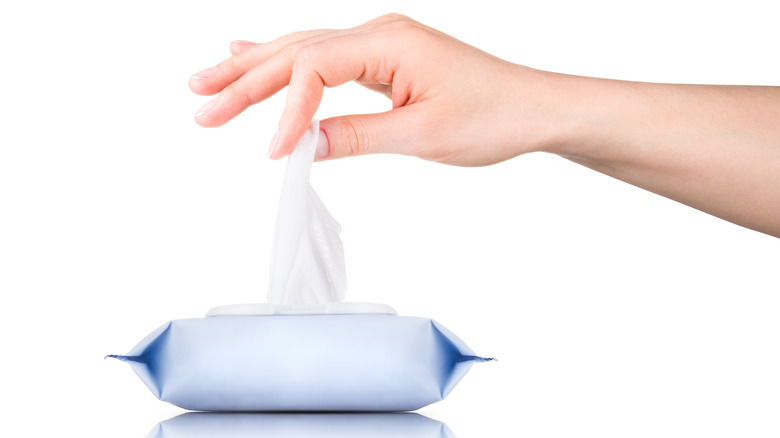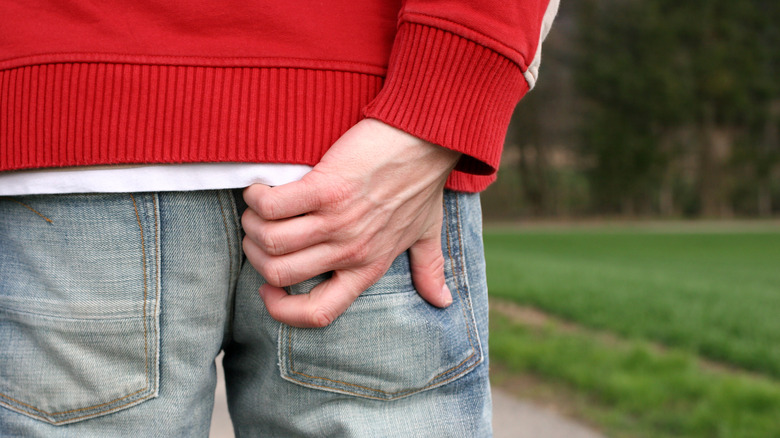Are Wet Wipes Bad For You?
Medically speaking, there is a proper way to wipe. Next to handwashing, wiping is the next best thing we can do for our health following a bowel movement in order to protect against odor and bacterial illness (via Verywell Health).
When wiping, direction matters. Gastroenterologist Dr. Sameer Islam takes viewers through a series of tips on toilet paper protocol via YouTube, stating, "If you wipe back to front, there's a chance you can get bacteria in places you don't want it" (via Men's Health). Wiping from back to front runs the risk of pushing bacteria from fecal matter up into the urethra, thereby increasing one's risk for a urinary tract infection (UTI) and general irritation and discomfort, according to Verywell Health. Therefore, it's important to either reach down behind your back or up between your legs and maneuver toilet paper from front to back.
In addition to direction, the strength of your wipe also matters, according to Dr. Islam, who notes that light blotting is safer than harsh scrubbing which can "cause a tear, hemorrhoids, or pain down below as well" (via Men's Health). To safeguard against irritation from repeated rubbing, are wet wipes a softer, safer option over toilet paper?
Overuse of wet wipes can lead to fungal infections and irritation
Although pre-moistened flushable wet wipes are doing their job by wiping away fecal remains, they're also doing away with our body's good bacteria too — creating an imbalance. Anal surgeon Dr. Evan Goldstein explains via Well+Good what happens as a result of this imbalance, stating, "With the homeostasis in the biome altered, bad bacteria starts to populate fungus or irritation, which I see all of the time."
In addition, while the lure of wet wipes may be the very fact that they're wet, their moisture has the potential to linger. Dr. Goldstein explains, "People tend to use wet wipes and then pull up their pants, so what happens is that the moisture sits there. The moisture just festers, and it causes a change in bacteria and leads to irritation" (via Well+Good). In fact, Dr. Gary Goldenberg, medical director of the Dermatology Faculty Practice at the Icahn School of Medicine at Mount Sinai, tells Self that of their patients who come in for treatment of anal irritation, wet wipe users are frequently among them.
Not only that, but the chemical components of wet wipes such as fragrances or formaldehyde may also pose potential health risks for frequent wet wipe users. "Patients may become allergic to chemicals present in the product," Dr. Goldenberg tells Self. For this reason, when it comes to wiping, it's best to stick with traditional toilet paper and to use wet wipes only occasionally.


